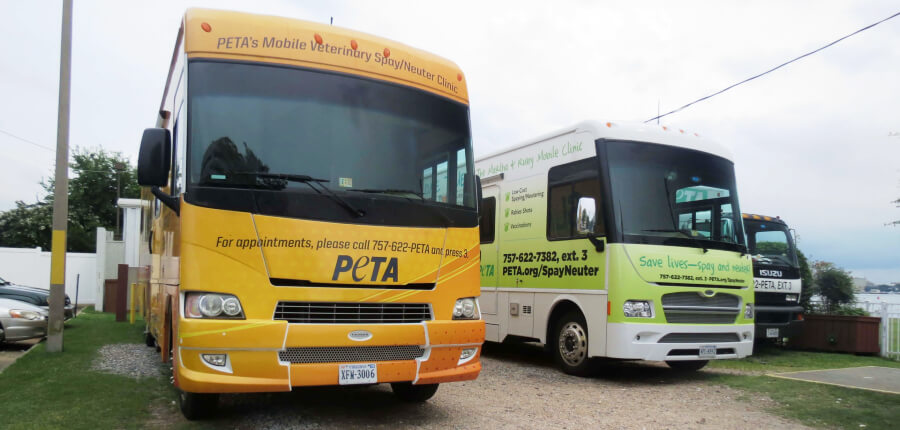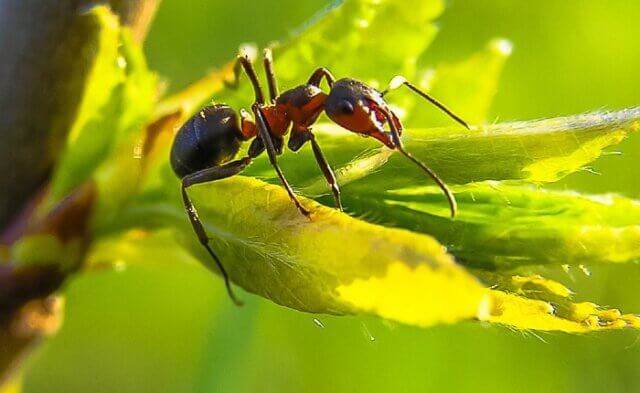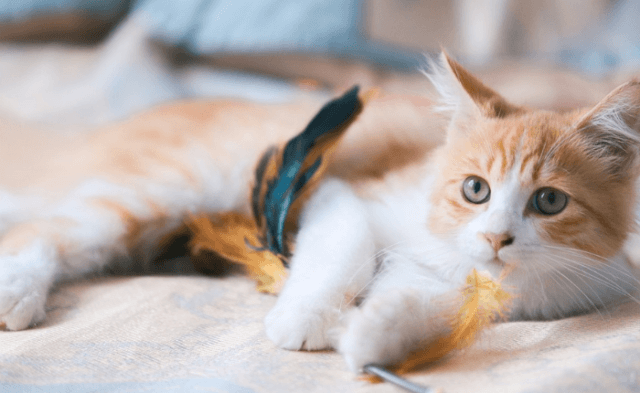As the director of PETA’s Mobile Clinics Division (MCD), Lori-Jo Ciccone facilitates our hugely successful lifesaving program by keeping our clinics rolling. Managing a dedicated team, she’s behind the wheel of our drive to spay and neuter the world’s companion animals—one snip at a time. Read on, as she gives us the inside scoop on PETA’s mobile spay/neuter clinics.
Nothing is more gratifying than helping to provide low or no-cost veterinary care for animals whose guardians want to do the right thing but don’t have the funds or transportation to do so. Our stellar staff of six—which includes licensed veterinary technicians, relief workers, and assistants—works six days a week. Our mobile clinics drive to low-income neighborhoods and provide animals who would otherwise have brought litter after litter into the world with lifesaving spay/neuter surgeries. If people need help getting their animals to the clinic, we are more than happy to give them a lift there and back, at no cost.
To help as many animals as possible, we follow a stringent schedule that starts at 6:30 a.m.—when a technician and veterinary assistant arrive at PETA’s headquarters to unplug the 38-foot RV and hit the road. We visit over 45 locations in Virginia and North Carolina, traveling as far as two and a half hours away. Upon arrival, we check in, examine the scheduled animals (up to 30 per day), and administer sedatives to prepare for surgery. As dogs take a bit longer to wake up from anesthesia than cats do, they are spayed or neutered first. All animals are discharged between 12 noon and 3 p.m. and then sent home with pain medication and post-op instructions.
Local shelters have told us that their intake of animals seems to have decreased in the years during which MCD has been operating. What empowers me the most is thinking of the number of animals who aren’t born because we’re there. We sterilized over 12,500 animals in 2020 alone—which saves countless lives, as just one female dog and her descendants can produce 67,000 puppies in six years and one female cat and her offspring can lead to 370,000 descendants in seven years. That’s hundreds of thousands of animals who will never know the dangers of homelessness.
This month, we’re geared up to “fix” even more animals. In honor of World Spay Day on Tuesday, February 23, we’re offering special deals and holding a telethon-style town hall meeting, during which every gift will be matched dollar for dollar, supporting funds for a crucial new mobile clinic.
We’re also partnering with a low-income shelter in Clarksville, Virginia, on Friday, February 26, and Saturday, February 27, to hold an overnight, back-to-back spay-a-thon, in which about 60 animals will be spayed or neutered each day.
PETA’s mobile clinics make a world of difference for animals. Will you help us help even more animals this World Spay Day?





